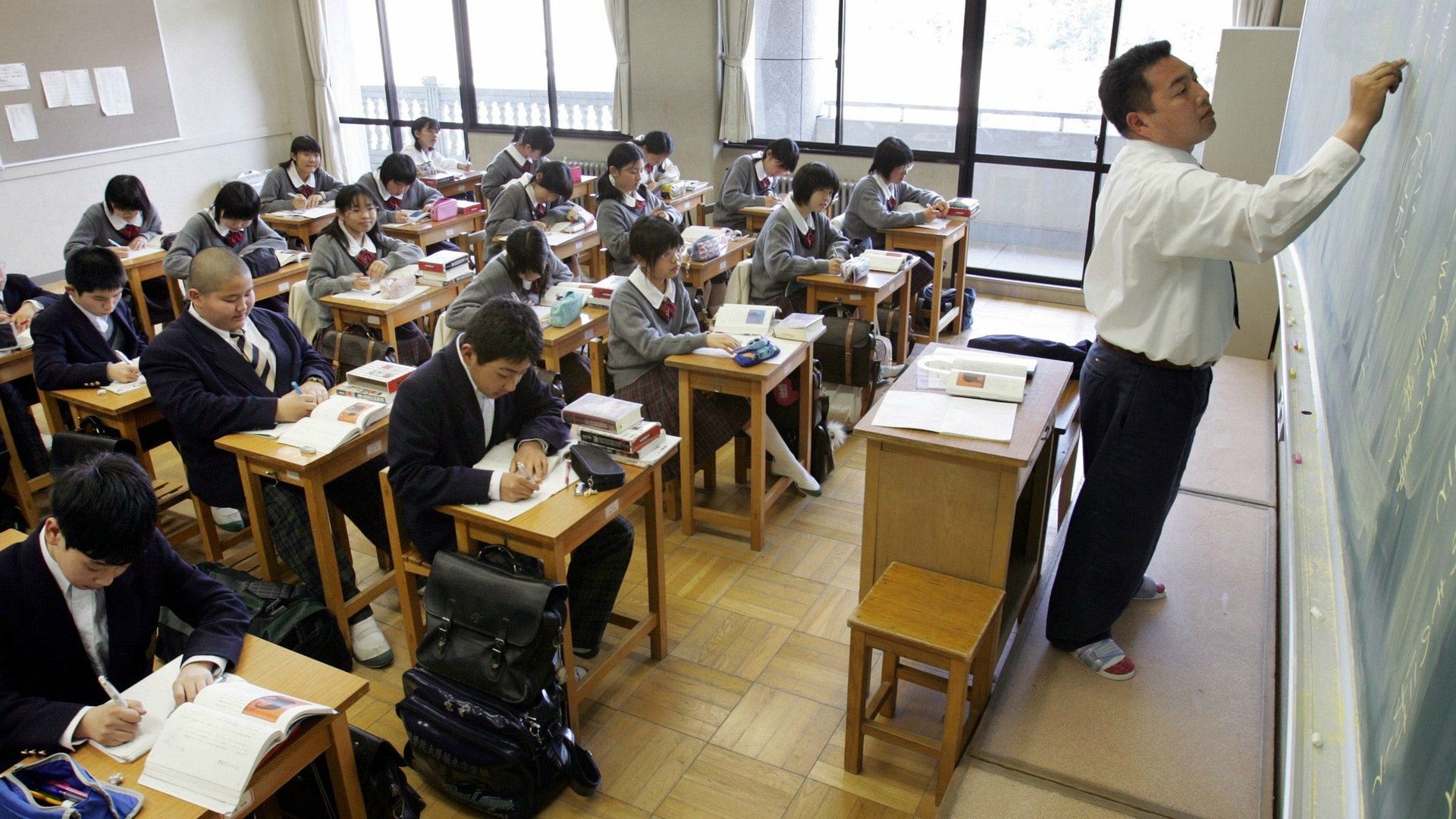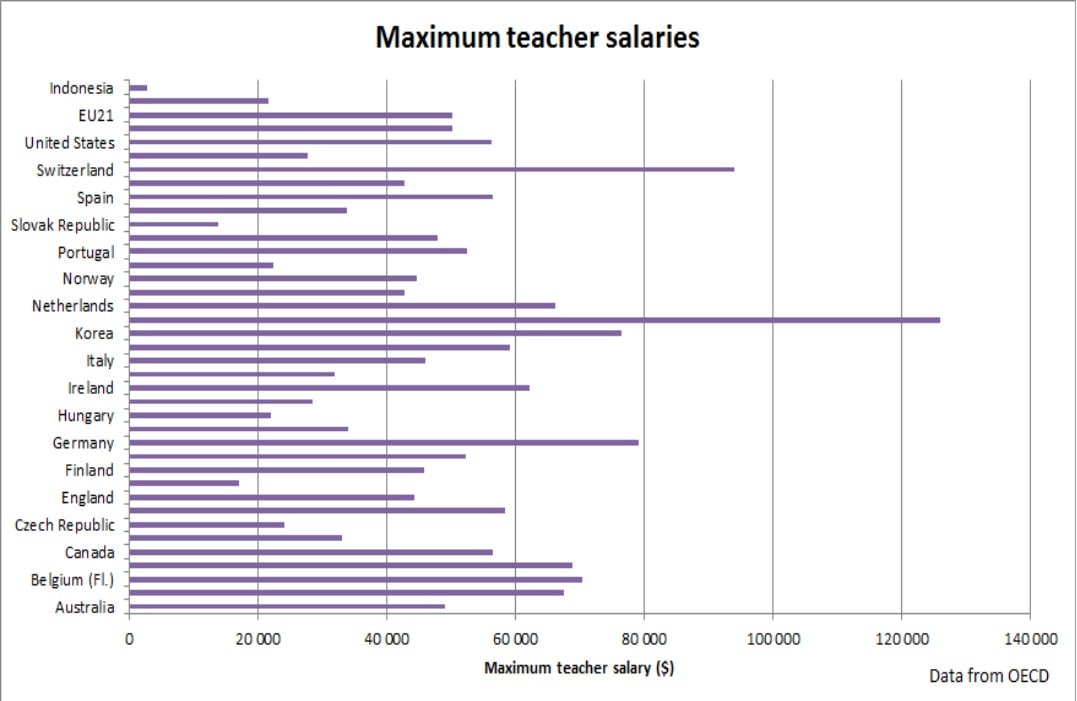Luxembourg’s teachers make twice as much as America’s
A “rock star teacher” in South Korea earns $4 million a year, most of it from online tutoring in English. Kim Ki-hoon’s success story showed up in the Wall Street Journal recently as a window into how much Koreans value their teachers.


A “rock star teacher” in South Korea earns $4 million a year, most of it from online tutoring in English. Kim Ki-hoon’s success story showed up in the Wall Street Journal recently as a window into how much Koreans value their teachers.
But they’re hardly alone in that sentiment, multimillion-dollar outliers aside. Quartz examined OECD data for the most experienced high school and upper secondary instructors across the globe and found wide discrepancies in teacher pay globally, and, often, within countries too.
Indonesia or the Slovak Republic are among the lowest paid among any countries tracked by the Organisation of Economic Cooperation and Development. In Indonesia, teachers earn $2,849 on average a year, while in the Slovak Republic, it’s $13,864 for top teachers with many years experience.
The highest paid teachers are found in Luxembourg at $125,962 annually. Meanwhile, Switzerland pays an average $94,038 a year for the most experienced teachers. In the millionaire tutor’s home of Korea, secondary teachers earn a top wage of $76,423, the fourth highest on the OECD list. In the US, they earn $56,303, just above the average for all OECD countries of $50,119. Elementary school teachers earn less and some schools in high cost areas pay much more, or offer housing assistance. By some accounts, Long Island, NY, has the highest average salaries for US high school teachers at $82,500, and some math and science teachers there earn far more.

Yet does high pay and pay for performance really improve student education?
Students in Korea and Finland have the highest reading scores among OECD countries, but Chinese students are higher still. (China is not measured in the OECD teacher-pay data, but a separate gauge shows its university professors are among the lowest paid, earning the equivalent of $259 a month.) Another measure of success is how many students go on to college or other advanced education. In the US, some 43% of 18- year-olds are in advanced or so-called tertiary programs, while in Belgium it’s 36%, and in Korean 65%, according to OECD data.
Test scores are higher in schools that offer individual performance incentives, several research reports indicate, but this could be because better schools can afford them. Other researchers suggest that recruiting higher ability people into teaching and providing faster salary increases will help student outcomes.
“Student achievement is significantly higher in countries that make use of teacher performance pay than in countries that do not use it,” wrote professor Ludger Woessman in a paper published in July 2010 (pdf).
Other research shows performance-based pay works when it is coupled with other initiatives (pdf) that gives teachers both respect and power to change the educational system.
That might help explain Kim Ki-hoon. As an entrepreneur-teacher, his empire includes 30 workers and a publishing company for his textbooks, according to the Journal piece. He doesn’t really have to answer to anybody—except his students. Or customers.